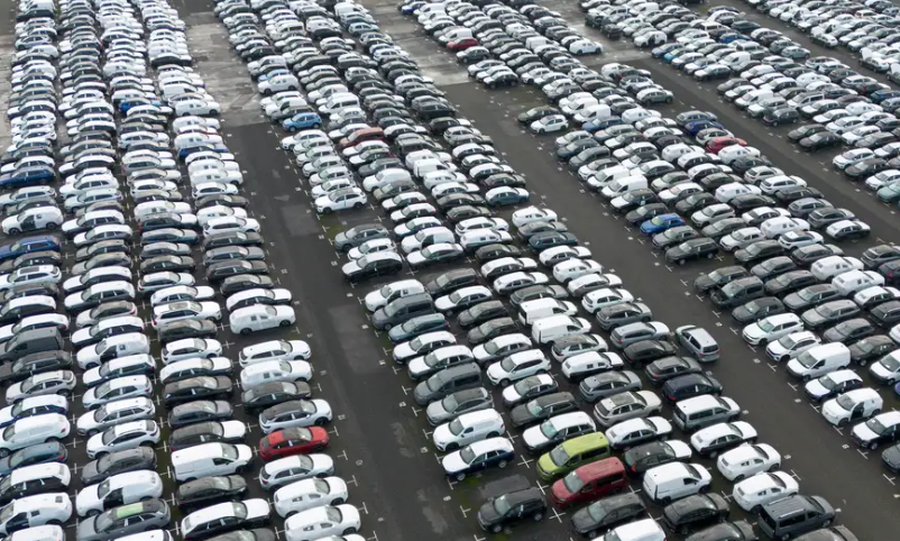
The EU Commission has presented its action plan for the European automotive industry. "It is a plan that ensures that European car manufacturers, suppliers and related service providers remain innovative, competitive and firmly anchored in Europe," EU Commissioner Apostolos Tzitzikostas told the press.
The automotive industry accounts for seven percent of European economic output and employs around 14 million people, said the Transport Commissioner. But it is about more than just numbers. People are proud of the car industry, but it is in danger.
The Commission sees the EU automotive industry at a critical turning point due to rapid technological change and increased competition.
The pressure is mainly from Chinese competition. European electric car manufacturers have little chance in the Chinese market. In contrast, Chinese manufacturers are trying to gain a foothold in Europe with more affordable electric cars. The US threat to impose punitive tariffs on steel and aluminum is also causing concern among car manufacturers, who fear rising prices.
"Next-generation" vehicles
The plan now presented by the EU Commission is based on discussions with representatives of the automotive industry. The aim is to make the industry fit for the future. The Commission wants to ensure that the European automotive industry is no longer left behind in key technologies such as artificial intelligence. That is why it wants to bring together the players developing the "next generation" vehicles. This includes the framework conditions for the development and testing of self-driving cars in the EU. The EU Commission aims to provide one billion euros for joint initiatives in this sector.
Boosting demand for electric cars
Currently, only 15 percent of all new vehicles sold in the EU are electric. To stimulate demand for zero-emission cars, the Commission wants to discuss incentive schemes, such as tax advantages, with member states. According to the Commission, around 60 percent of all new registrations in the EU belong to company fleets, i.e. they are company cars, rental cars or taxis. A legislative proposal will be presented in 2025 to bring more climate-neutral vehicles onto the roads.
The EU Commission also announced that it will promote a system of "social rental." This aims to enable citizens with lower incomes to use e-mobility. France, for example, had introduced such a model.
The necessary flexibility
Commission President Ursula von der Leyen announced on Monday that she wants to help the automotive industry. In future, there should be more flexibility. In fact, the average amount of CO2 emitted by each manufacturer and each year should be measured. If a certain limit is exceeded, fines can be applied.
The EU Commission now wants to give producers the option to offset the highest values allowed for the current year with those for future years. This could help them avoid fines. This would have to be decided by the EU Parliament and the EU Council through a legal regulation.
This should be the "last concession to the car industry", warned the Transport and Environment organisation. "This is not a gift to car manufacturers, but necessary to keep change on track," says Sigrid de Vries, Director General of the European industry association ACEA (European Automobile Manufacturers' Association).
At a press conference, she praised the plan and the previous dialogue with the Commission as a "sign of growing awareness" of the challenges facing the industry. Europe needs a reality check on how it wants to deal with the green transition on the one hand and global competitiveness on the other. Her association welcomes the Commission's "pragmatic turn" but believes more needs to be done.
The end of combustion engines?
The current plan is that from 2035 onwards, no new combustion engine vehicles will be allowed to be sold in the EU. Transport Commissioner Tzitzikostas has now announced that the so-called combustion engine phase-out will be reviewed earlier than planned - namely this year and not in 2026.
The review, which is scheduled to take place in the second half of 2025, will focus primarily on the question of whether the goal of new cars with zero CO2 emissions can also be achieved with other technologies, such as e-fuels.
Large parts of the conservative European People's Party, to which von der Leyen belongs, want to repeal the ban on combustion engines in order to give car manufacturers more time.
Meanwhile, Transport and Environment warns that lawmakers should not bow to pressure from the car industry when reviewing values and limits. After all, cars, vans and trucks in the EU are currently responsible for 22 percent of greenhouse gas emissions.
Battery production in Europe
The EU wants to ensure that batteries for electric cars made in Europe become more competitive. Funds will be made available for this purpose and a legislative proposal will specify which battery components must come from the EU.
In addition, from 2026 there will be a structure to help manufacturers procure raw materials. For this purpose, 1.8 billion euros will be poured into an innovation fund. Furthermore, the Commission will continue to work on free trade agreements to ensure a level playing field and secure access to rare raw materials, Tzitzikostas said./ DW (A2 Televizion)











